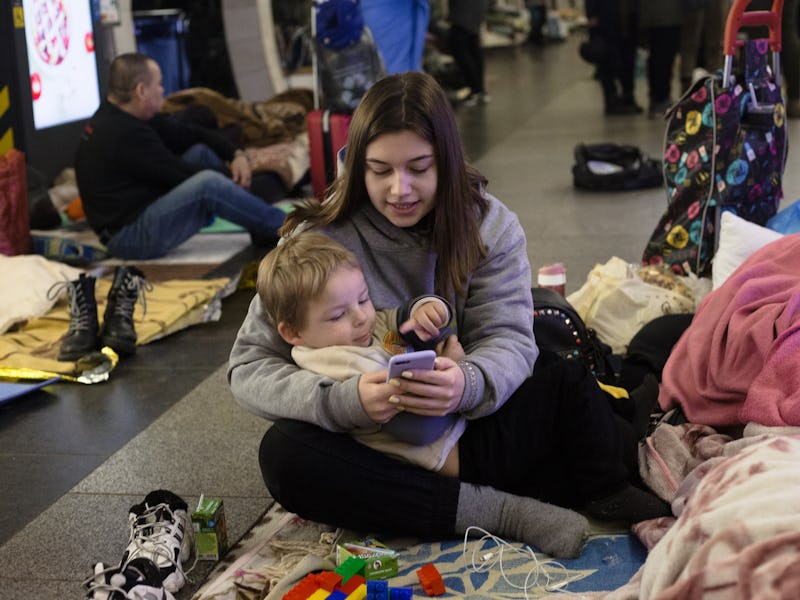Ukraine minister's plea to Sony and Microsoft reveals how war has changed
What if game companies really did do something about it?

Ukrainian Vice Prime Minister Mykhailo Fedorov has called upon video game companies, including Sony and Microsoft, to stand with the embattled nation amid its ongoing conflict with Russia. While video games might seem pretty low on Ukraine’s list of priorities at the moment, this call to action is a clear indication of how the digital age has reshaped how people interact with one another all over the world — even shaping how wars are waged and won.
What happened — On March 2, Fedorov addressed his open letter to “all game development companies and esports platforms,” asking them to stand against Russian aggression in Ukraine. Though he tagged Microsoft and PlayStation — two of the biggest game companies — on Twitter, the letter seems to address the industry as a whole.
“You are definitely aware of what is happening in Ukraine right now,” he tweeted alongside a longer letter. “Russia declare war not for Ukraine but for all civilized world. If you support human values, you should live [sic] the Russian market!”
In the letter, he asks the companies responsible to block all Russian and Belarusian accounts, halt Russian and Belarusian participation in international esports events, and cancel all gaming events held in those territories.
If enacted, Russian and Belarusian citizens could temporarily lose access to their gaming accounts and be unable to participate in international esports competitions. Some companies, like EA, have already taken action through other means, removing Russian teams and players from their games.
An online battle — Fedorov has been mobilizing tech companies across social media over the past few days. He reached out to Apple, Facebook, and others in an effort to ask for aid in the war, and it worked. Facebook, Google, and YouTube have limited Russian media and ads on their platforms. Google took it a step further by halting live traffic data in Ukraine.
The Washington Post reports that Federov has reached out to more than 50 companies with similar requests. His staff members also work behind the scenes with a “network of Ukrainian expats and regulators” from outside the country to encourage action from foreign companies. Seemingly, Federov has done this without prompting from other government officials or military leaders.
Federov is hailed as a social-media-savvy politician. The youngest Ukrainian minister has used these mediums to his advantage and isn’t afraid of asking for help — even from controversial figures like Elon Musk. As he writes in his open letter, “modern technology is perhaps the best answer to the tanks, multiple rocket launchers (hrad) and missiles.”
Sony and Microsft have yet to comment on the matter.
Effect on Russia — So what does banning gaming accounts or social media platforms do besides punish innocent Russian civilians who might not even support the war? One potential outcome here is that it may help persuade Russian citizens to rally against Putin. The only way to restore all technical services and related media would be for the war to end.
“We are sure that such actions will motivate the citizens of Russia to proactively stop the disgraceful military aggression,” Federov writes in his March 2 letter. He believes that these blocks might mobilize Russian citizens to help bring the conflict to an end.
This solution isn’t necessarily perfect, though. For example, Federov cheered on CEO Tim Cook when Apple halted sales in Russia and asked him to “finish the job” by removing the App Store. However, Russian citizens and others on Twitter commented that might not be such a great idea, considering so many of them rely on apps to read objective news.
The Inverse Analysis — This unorthodox strategy might be a canny tactical move to inspire dissent in Russia through non-violent means. However, it might lead to unforeseen consequences, such as making it more difficult for Russians to communicate with the outside world. U.S. officials have also warned that the resistance could cause Putin to lash out with a more heavy-handed attack.
We expect the games industry will continue to show support for Ukraine in the coming days and weeks, but it remains to be seen how much of an impact the actions of these companies will have.